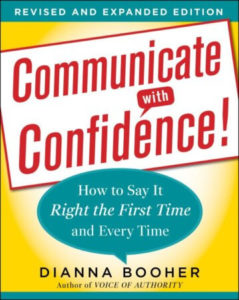


(Forbes first published my article here.)
Should you never put off until tomorrow what you can do today? Pundits and productivity experts have pinpointed procrastination as the cause for unfulfilled dreams, wasted personal potential, business failure, and broken relationships. Often, such pronouncements ring true.
But equally true is this: Being “the first kid on the block or first expert in the marketplace,” you may run into the proverbial brick wall when you sprint too quickly toward a life goal, business project, or work deadline.
My year in Miss Amos’s English class created my first dose of skepticism about this principle my dad has repeated to me since childhood. As a junior in high school, I had a part-time job to earn spending money and pay for my future college plans. My boss at Sears, Joyce Rose, scheduled me for between 20-29 hours every week after school and weekends.
The problem? My workdays and hours varied, depending on when more senior associates wanted to be off. As a result, I feared not having enough time in any given week to do the required homework. My constant anxiety was having Miss Amos assign a big research paper the week Joyce Rose scheduled me for 29 hours at work!
Thus, my philosophy (based on my dad’s philosophy): “Get ‘er done!”
As soon as Miss Amos assigned a 10-page essay with a required 12-source bibliography, I hopped to it. After all, I couldn’t afford to wait until others had checked out all the good books on my topic from the library. What if the needed source didn’t become available for a week—the exact week Mrs. Rose scheduled me for maximum hours? Panic.
So I worked feverishly until I finished that paper, with the required 12 sources and a couple extra for good measure.
Then I witnessed a disappointing scenario among my classmates day after day before the big deadline:
On and on the complaints circulated at the beginning of each class period until Miss Amos grew weary of the yapping. She finally relented: “Okay. I’m going to cut it to 6. But you’d better have a solid six sources and cite them correctly according to the MLA.”
My reaction at hearing the cave-in: “NOW, she tells us? After I killed myself finding those 12 sources!”
Ditto my senior year. Ditto throughout my college years. I rushed ahead “today” because some horrendous catastrophe might befall me “tomorrow.”
The stress multiplied as I became a career author: You can imagine the hours I put in as a young mother with two toddlers, trying to write books nightly between 9:00 pm and 6:30 am.
As the stress mounted to complete one book, then another, then a dozen more, I paused when a close friend said to me: “Dianna, you’re intense. I don’t think I’ve ever been around anybody as intense in their work as you are.”
That remark led to reflection. Why was I pushing so fast to beat the book contract deadline? To make sure I’d be free to attend the kids’ school events and church events? To make sure my work was finished in case of some unexpected illness or tragedy in the family?
All of the above.
At one point during those years, my dad commented to me: “You look so tired. Slow down. You’re working too many hours.” Then sitting in his den, the source of that vague do-it-now anxiety hit me: Dad and Mom always made us kids finish our homework before we could go out to play with the neighbor kids—and before we could play in our weekly basketball, volleyball, or softball practices or games.
The problem with that philosophy?
I’m an author! Books are seldom “done.” Another chapter needs to be added. Another source needs to be consulted. Another interview needs to be conducted. Another survey seems appropriate. Another edit would always improve my manuscript.
Once I identified the underlying source of my “productivity” stress, I realized that as a writer my work would NEVER be done. It would never be perfect.
Consequently, I learned the value of metaphorically typing “The End.” On work projects. On volunteer projects. On hobbies.
My saner self has learned to avoid the bleeding edge on software, cell phones, social media, or civic projects. Like Scarlet O’Hara, I’ve learned to say, “I’ll think about that tomorrow.”
Should you learn the same lesson? The balance between productivity and play?
Learn more about the importance of balance in Communicate With Confidence!: How to Say It Right the First Time and Every Time.
